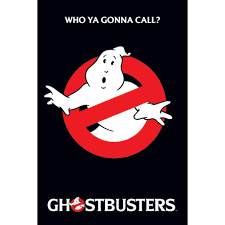
Introduction
‘The Day of the Jackal’ is a riveting political thriller that first entered public consciousness through Frederick Forsyth’s 1971 novel. This captivating tale of an assassination attempt against French President Charles de Gaulle has not only won acclaim in literature but also captivated audiences through its film adaptation in 1973. With themes of espionage, meticulous planning, and moral ambiguity, the narrative serves as a lens through which readers and viewers examine the consequences of political strife, making it a timely topic in today’s turbulent political climate.
The Storyline
The plot centres around a professional assassin, known only as ‘the Jackal’, who is hired by a group of disillusioned French extremists seeking to eliminate de Gaulle. The unique premise of the story highlights a cat-and-mouse dynamic between the Jackal and French law enforcement, particularly through the character of Inspector Claude Lebel, tasked with preventing the assassination. Forsyth’s attention to detail and research into various elements of espionage and covert operations lend the novel a sense of realism that has contributed to its enduring popularity.
Impact on Culture and Media
The novel’s film adaptation, directed by Fred Zinnemann, introduced the story to a new generation and solidified its place in cinematic history. The film carefully maintains the tension of the book while adding visual elements that enhance the storytelling. Notably, the performance of Edward Fox as the Jackal received widespread acclaim, and the film’s meticulous pacing keeps audiences on the edge of their seats. Both the book and the film have inspired numerous other works in the thrillers and espionage genres, and discussions about the ethical implications of the Jackal’s actions continue to be relevant today.
Relevance Today
In an age marked by political assassinations, dramatic political landscapes, and a renewed focus on ethics in both government and private spheres, ‘The Day of the Jackal’ remains pertinent. The themes presented in Forsyth’s narrative echo modern concerns about the influence of extremist groups and the lengths to which individuals may go for political beliefs. As such, the story serves not only as entertainment but also as a profound commentary on the fragility of political stability and the human condition.
Conclusion
Ultimately, ‘The Day of the Jackal’ continues to resonate, captivating audiences through both its suspenseful storytelling and insightful explorations of political motives. As we navigate current global tensions, the legacy of this narrative challenges us to reflect on the price of political ambition and the enduring battle between personal conviction and collective public good. Whether approached through the lens of literature or film, ‘The Day of the Jackal’ invites us to consider the repercussions of our actions in an increasingly complex world.
You may also like

The Enduring Legacy of Sylvester Stallone

The Remarkable Journey of Michael Caine

The Legacy and Impact of Ghostbusters
SEARCH
LAST NEWS
- Remembering Wendy Richard: The Promise to Co-Star Natalie Cassidy
- How Did Anglian Water Achieve an ‘Essentials’ Rating for Mental Health Accessibility?
- Shai Hope Leads West Indies in T20 World Cup Clash Against South Africa
- What We Know About Weston McKennie: Future at Juventus and Past at Leeds
- What We Know About the Upcoming Live Nation Antitrust Trial